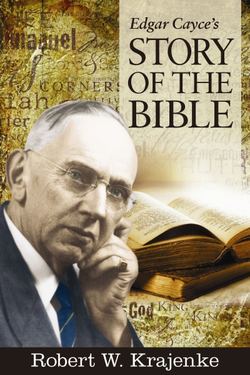Читать книгу Edgar Cayce's Story of the Bible - Robert W. Krajenke - Страница 69
На сайте Литреса книга снята с продажи.
Exodus
ОглавлениеFrom the time of Joseph until Moses there had been no noteworthy happenings to confirm the covenant which had been made with Abraham. The first chapters of Exodus, with background, details, and significant events in the early life of Moses, lead up to the renewal of the covenant. Through Moses God affirms the eternal contract He has made between Himself and His people—Humanity!
Not only is the covenant renewed through Moses, but it is enlarged upon, with the addition of definite roles, regulations, and laws which must be followed. New prophecies and promises are added. Many of the events throughout Exodus are the fulfillment of prophecies which have already been made.
As one through whom the covenant was being renewed, Moses had to become a “living” example of the power and presence of the God he worshipped. He not only had to receive and record the law, he also had to comprehend its significance and be able to interpret it for those he had to lead. In order to have this understanding, he had to live in accord with all that came through him as a divine channel.
In Egypt, as in every other country at that time the people worshipped idols, statues, and other physical objects which represented attributes and activities of their gods. For the Egyptian, the serpent was the god of wisdom. The bull represented strength. The hawk and the eagle governed mental superiority. Everything that was necessary for material existence was represented by some figure. They were worshipped by those Egyptians who were seeking to manifest the particular attributes or aspects embodied in that god.
When Moses approached Pharaoh and asked that his people be given their freedom to worship, Pharaoh wanted to know what their god was like. He assumed it would be represented in some definite, concrete material form.
Moses was challenged with the task of bringing the Hebrews, once again, into the realization that their God was a living God, one whom they could worship in spirit, and who would answer prayer. In this crucial period in Israel’s history, Moses established a new relationship between man and God. Before this, the people always worshipped the God of their fathers. The people never prayed, “Our God—My God,” but always to the God of Abraham, Isaac, and Jacob. Moses established a means by which God can be approached directly, and thus become more personal to each individual.
Edgar Cayce felt that the new identity of God as Jehovah was like a sign to the people. The name made Him more personal, just as the name Jesus does for the Christian. Throughout the Exodus, the Hebrews began to feel, experience, and comprehend the awareness of the presence of the divine in their lives. Jehovah became the most endearing word by which they could refer to this all-powerful, unseen, creative force manifesting through them. The covenant which had been made to Abraham, Isaac, and Jacob began to be more real to them.
This promise, Edgar Cayce said in one of his Bible class lectures, was renewed in Jesus, who said he would bring into remembrance all things, even from the foundations of the world. Just as it was necessary for the Hebrews then, he taught, it is the responsibility of the individual today to make that promise real in his own life.
